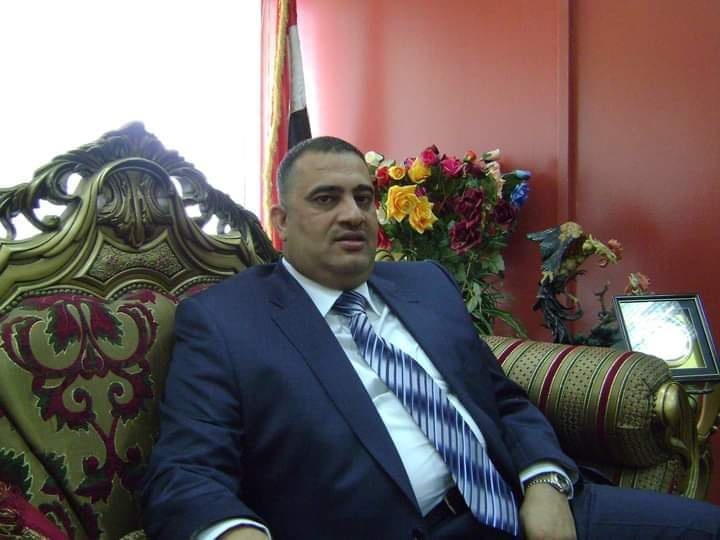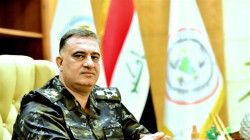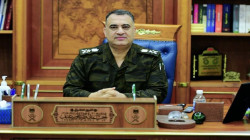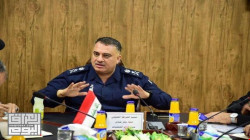How did the controversial "Abu Ragheef" become a nemesis for faction leaders?

Shafaq News/ It is cumbersome to illustrate the details of a man who is deeply rooted in the Iraqi security and intelligence scene, especially for a character like Ahmed Abu Ragheef's, who has been at the forefront of events and news in recent months, turning into what might be called Prime Minister Mustafa Al-Kadhimi's "strike force".
The features of this distinct character can be easily discerned via news headlines about him, "Abu Ragheef refers a high-security official to investigation for reciting the Qur'an in military uniform", "Abu Ragheef overthrows the intelligence director in al-Tarmiyah", "Abu Ragheef's Committee arrests a senior intelligence official", "Abu Ragheef's committee arrests two government officials", "Abu Ragheef's Committee overthrows the director-general of a government company", and "Abu Ragheef issues strict economic security orders to prevent price manipulation".
These are just examples of headlines about Abu Ragheef's duties, who has been in charge of federal intelligence and investigations at the Interior Ministry since January 23, 2021, and chaired the High Commission for the Investigation of Major Corruption and Exceptional Crimes since its formation August 27, 2020.
Abu Ragheef's authority includes security, intelligence, corruption, and economic security, but the file that sparked controversy is the case of a prominent leader in Al-Hashd Al-Shaabi (Popular Mobilization Forces-PMF), Qassim Musleh. It is believed that Abu Ragheef carried out Musleh's arrest, nearly triggering a major political-security crisis in Baghdad, specifically in the Green Zone.
Who is Abu Ragheef?
According to private sources, Abu Ragheef is a graduate of the Police College and holds Bachelor's, master's, and doctoral degrees in law, a resident of al-Kut in Wasit governorate. He was appointed to several security positions, including Assistant Undersecretary for intelligence affairs, deputy director of Baghdad police, deputy police chief of Baghdad, deputy director of interior affairs, director of interior affairs, undersecretary of the intelligence agency, and director of the Higher Institute in the Ministry of Interior.
At the time of Saddam's regime's fall in 2003, Abu Ragheef was a major and re-served in the Baghdad police with the rank of police major with the return of the police to work after 2003. In 2005, he was ranked Lieutenant Colonel, in 2006, he was a brigadier general, and in 2011 he was ranked as a general.
According to private sources, Abu Ragheef referred to retirement on December 1, 2014, by Prime Minister Nouri Al-Maliki and reinstated on October 26, 2016, by Prime Minister Haider Al-Abadi.
Today, Abu Ragheef is one of the three men who form the inner circle of al-Kadhimi, along with Abdul Wahab al-Saadi, head of the Counter-Terrorism-Service, and Abdul-Ghani al-Asadi, head of the National Security Service.
The apprehension of Qassim Musleh
The arrest of Qassim Musleh put Abu Ragheef under the political forces and armed factions' microscope, who saw the move as an infringement of their existence. But, perhaps more seriously, Abu Ragheef, through its broad powers, was enabled to pursue both security and corruption issues, which puts him in an inevitable clash with the "deep state" of Iraq, whose head is unknown, and whose arms cannot be completely cut off.
Therefore, the arrest of Qassim Musleh came to blow up the sparks that have accumulated over the past months with arrests - supervised by Abu Ragheef - believed to target more than 30 figures, including prominent political and business figure. That fueled the political storm against him, whether in media platforms or perhaps inside the parliament.
Al-Kadhimi is clearly betting on Abu Ragheef to address many security and corruption-related issues, a file that the PM has pledged to deal with. However, more than a year has passed since he became prime minister, and many Iraqis still say that a serious breakthrough is yet to occur.
"It is unclear whether Qassim Musleh's arrest would lead to Abu Ragheef's dismissal or not, although faction leaders put this demand before the prime minister," an informed source told Shafaq News agency.
The controversy between Abu Ragheef and al-Hashd Al-Shaabi
For its part, the P.M.F. rejects the idea that the anti-corruption Commission, led by Abu Ragheef, will issue a memorandum against its leaders. This puts the power represented by al-Kadhimi and Abu Ragheef against the most powerful Iraqi factions.
Al-Fatah Alliance leader, Hadi al-Ameri, was not firm on whether he was alluding to al-Kadhimi or Abu Ragheef when he said a few days ago that the judiciary and the security services cannot be compacted into one person, "There are some wrong practices of arrests without warrants. There are also methods of torture that we can never accept, and this is the first step towards a dictatorship."
Due to the nature of Abu Ragheef's tasks, which put him face to face with the threats and danger, he reports directly and exclusively to al-Kadhimi.
Abu Ragheef's name was frequently mentioned in May, when clashes broke out in Basra between gunmen believed to be from Asa'ib Ahl Al-Haq and a force from the Falcons Intelligence Cell run by Abu Ragheef. After the force arrested a group accused of murder and robbery, including those belonging to the so-called "Death Squad" accused of assassinating activists.
Therefore, Abu Rgheef's name was always drawn controversy for his involvement with security and corruption files. However, since the formation of the High Commission for the Investigation of Corruption Cases, there has been growing optimism that solutions to one of the most sensitive cases in Iraq can finally be reached. Still, at the same time, the Commission and its chairman, Abu Ragheef, have been widely criticized.
The criticism came from parliamentary parties, forces, and blocs based on information that the committee has detained dozens of those involved in corruption cases for long periods without lawyers, and tortured them to extract confessions by force.
Critics also said that whether or not the suspicions were true against the detainees, investigating magistrates should oversee the investigation, not members of an anti-corruption commission, no matter how broad its legal powers.
Al-Kadhimi himself was forced to address these critiques himself, deeming them as fabricated and that those with complaints could go to court.
Abu Ragheef knows that addressing corruption issues in Iraq is like trying to dismantle a complex booby-trap that may explode at any minute, as the "deep state" would not make it easy for any security officer, no matter how prominent he was.
Abu Ragheef was also accused of being a "tool" in al-Kadhimi's hands to get rid of his opponents, such as in the case of the head of al-Hal Party, Jamal Al-Karbouli, who was arrested for corruption charges, or even in the case of the former Nineveh governor, Nawfal Al-A'agoub.
Many fear that the "impossible task" entrusted to Abu Ragheef to fight corruption is doomed to failure, like many anti-corruption committees and councils set up in Iraq over the past years, raising the challenge for Abu Ragheef to succeed in his mission, but ultimately also putting him in great danger unless he has a strong political cover to progress even if slowly.
For those reasons and more, it is plausible to keep asking: will Abu Ragheef survive the raging sea of the deep state?


